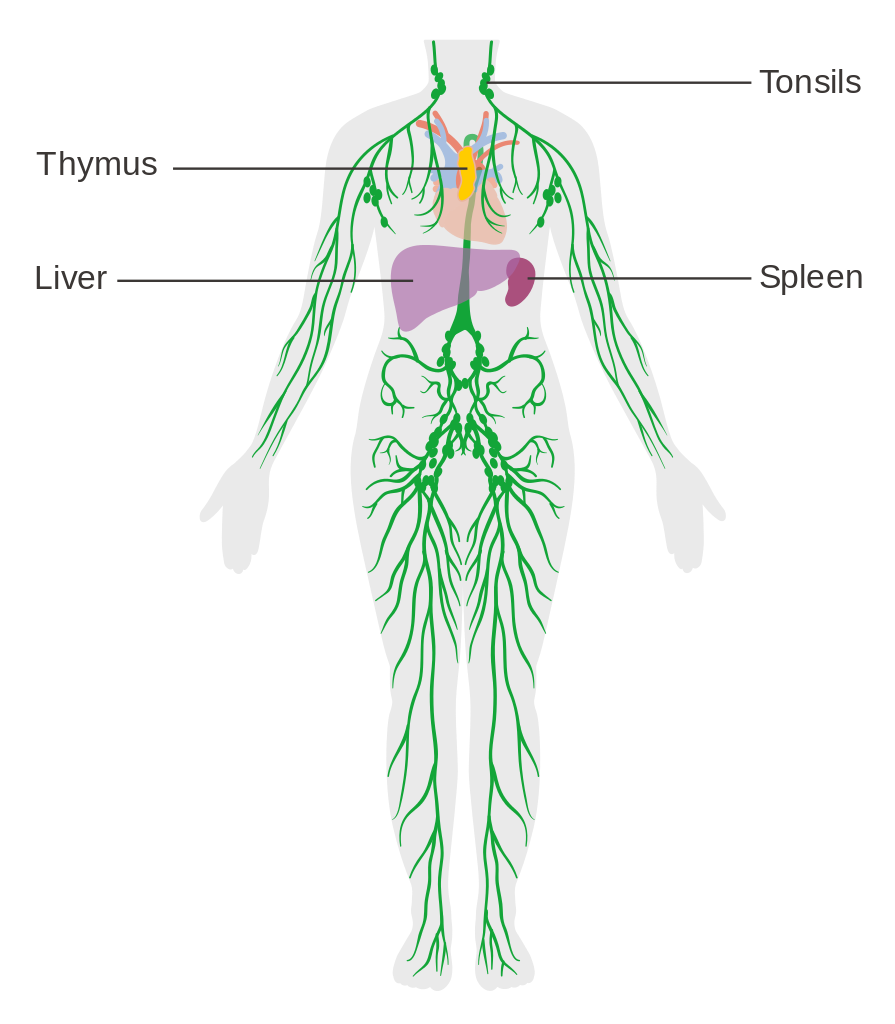The Lymphatic System And Cancer
The lymphatic system is a big part of the body’s immune system and a subset of the circulatory system. It is composed of lymphatic vessels, lymphatic nodes, and of the body’s organs, most importantly the spleen. The main function is to carry lymph through the body’s lymph vessels in an upward motion towards the heart.

Although the lymphatic system is responsible for transporting nutrients, proteins, and white blood cells to fight infections, it can also be a method of transportation for diseases to spread such as cancer.
Lymph is a colorless fluid that is composed of white blood cells like lymphocytes which are the cells that attack bacteria in the blood, and other white blood cells that help the body get rid of toxins, waste, and any other unwanted cells. Lymph is created after plasma delivers nutrients and removes waste from cells from all organs and tissues. Most of the fluid that carries this goes back into the blood system, but what is left behind to keep transporting the rest is lymph.
Lymph travels through the lymph vessels, which are very similar to our blood veins, towards the heart to be filtered.
Lymph is filtered from foreign cells such as bacteria and cancer cells at the lymph nodes which are located in clusters in various parts of the body, such as the neck, armpit, groin, and inside the center of the chest and abdomen.
The lymph nodes are also responsible for creating immune cells to fight infection. If an infection is present in the body, the lymph nodes become swollen because of the increase of immune cells they create. There are more than 600 lymph nodes in your body. The thymus is located right above your heart and it is responsible for storing and preparing lymphocytes and sending them into the lymphatic vessels.
The spleen is the largest organ part of the lymphatic system, and it is responsible for creating white blood cells, although you can live without a spleen, it makes you more vulnerable to infections. So basically the lymphatic system is a highway for lymph to deliver nutrients and disease-fighting cells where they are needed while removing the toxins and foreign material from the organs and tissue.
The Lymphatic System And Cancer
The lymphatic system is in charge of sending lots of disease-fighting cells to keep you healthy but on some occasions, the lymphatic system can transport diseased cells to other parts of your body such as cancer cells. Cancer can appear in the lymph nodes in two ways: it can either start there (Lymphoma) or it can spread there from somewhere else. Most of the time if a cancer cell manages to separate from a tumor and enter a lymph vessel, the white blood cells attack and kill it.
When the cancer cell travels without being destroyed it can attach itself to an organ or tissue and start growing, thus metastasizing cancer.
If the cancer cells stay in the lymph vessels and infect the lymph nodes or there is cancer too close to the lymph nodes, they may need to be surgically removed causing Lymphedema which is a chronic swelling of the limbs caused by the accumulation of lymph fluid due to lack of lymph nodes.
The lymphatic system is an important part of our body since it is mainly responsible for cleaning our body and fighting diseases. If you notice swollen lymph nodes in the areas where they are most present such as the neck, armpit, and groin consult with your physician immediately. There are treatments that may be used to compliment your immune system and help fight diseases through the lymphatic system.



